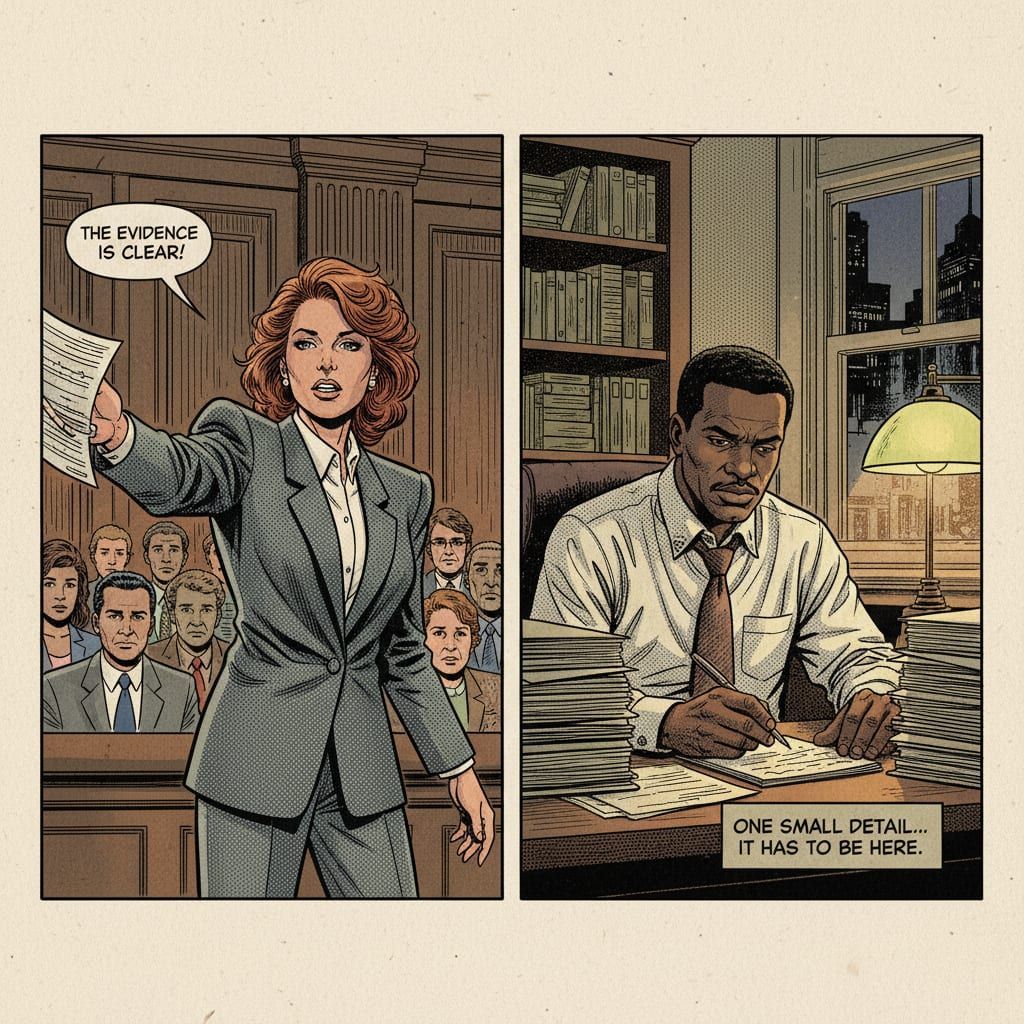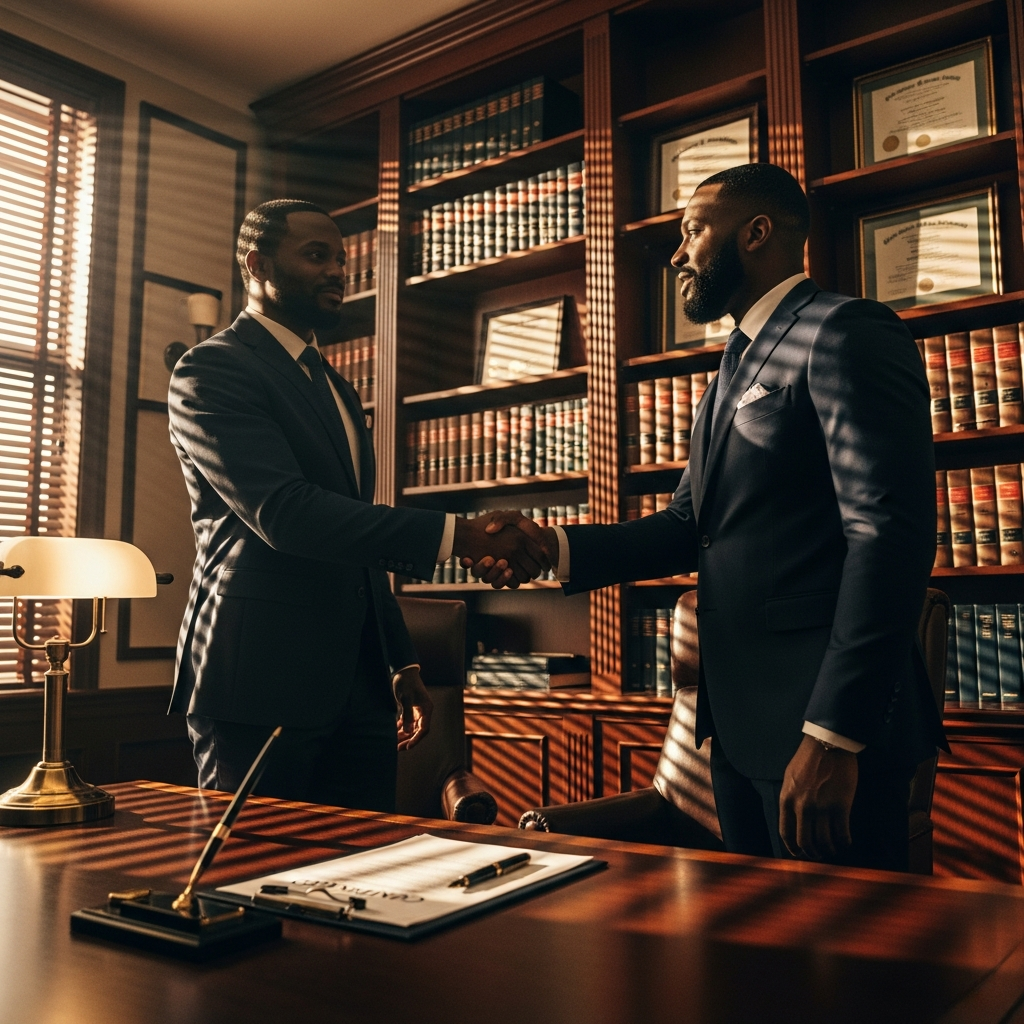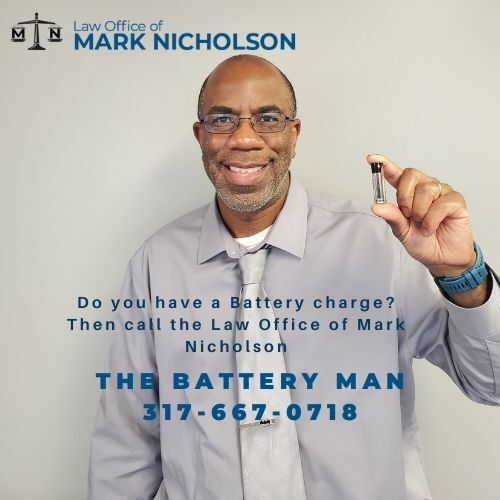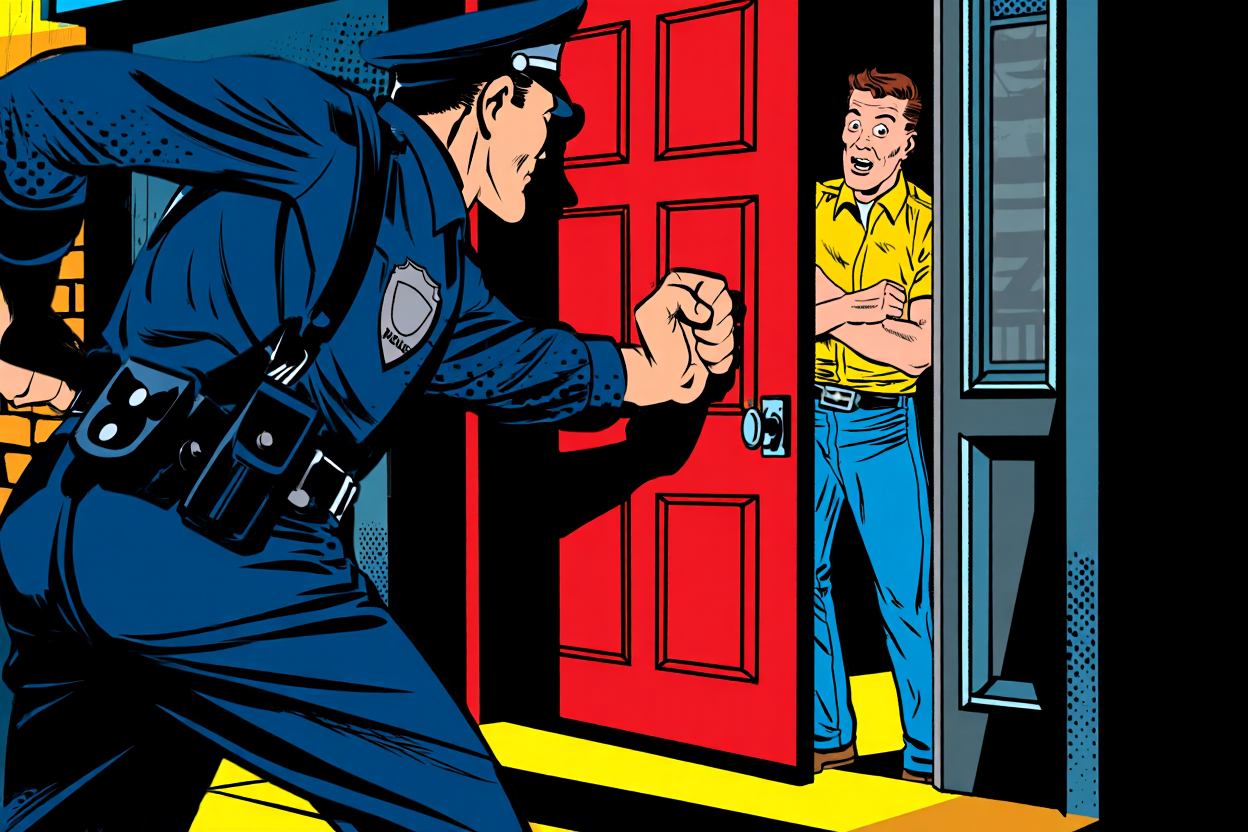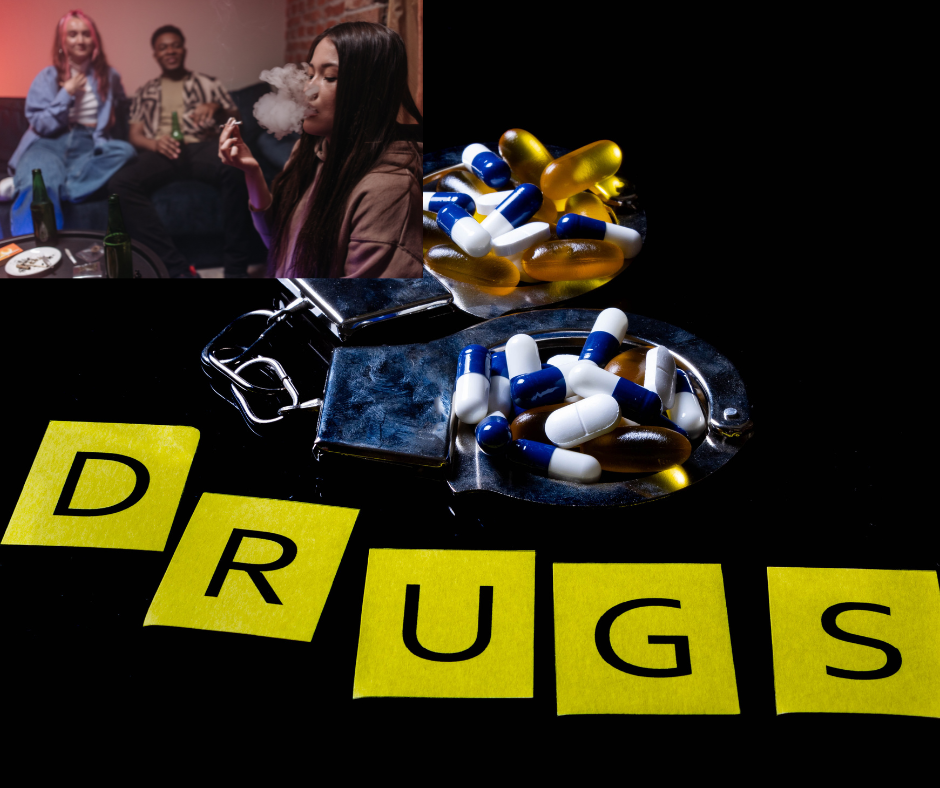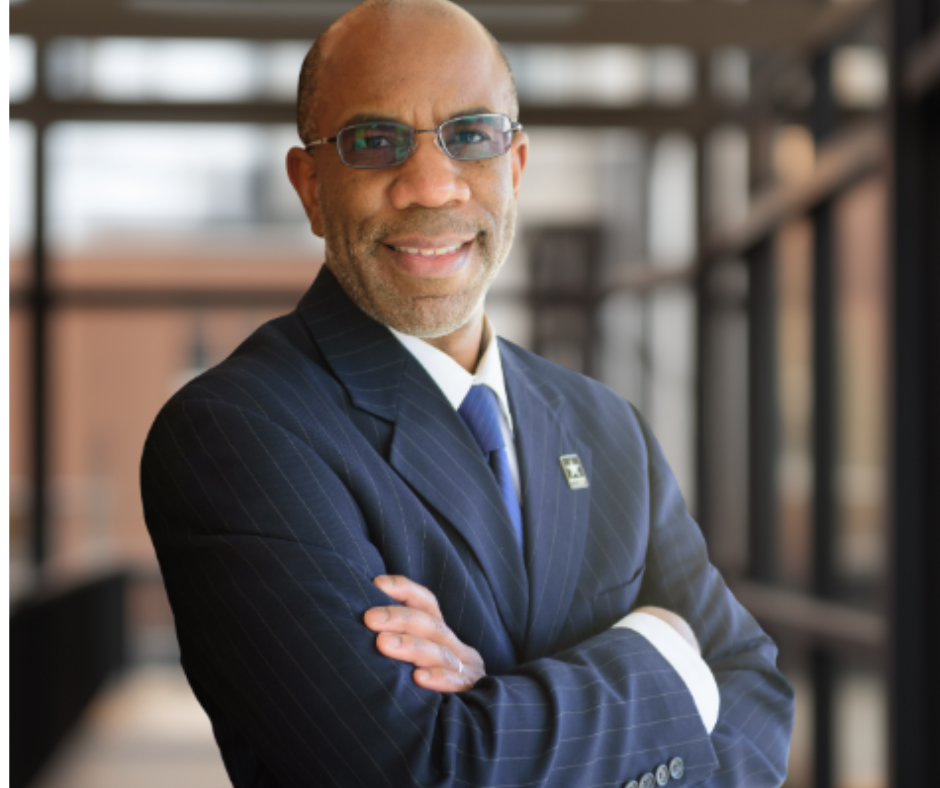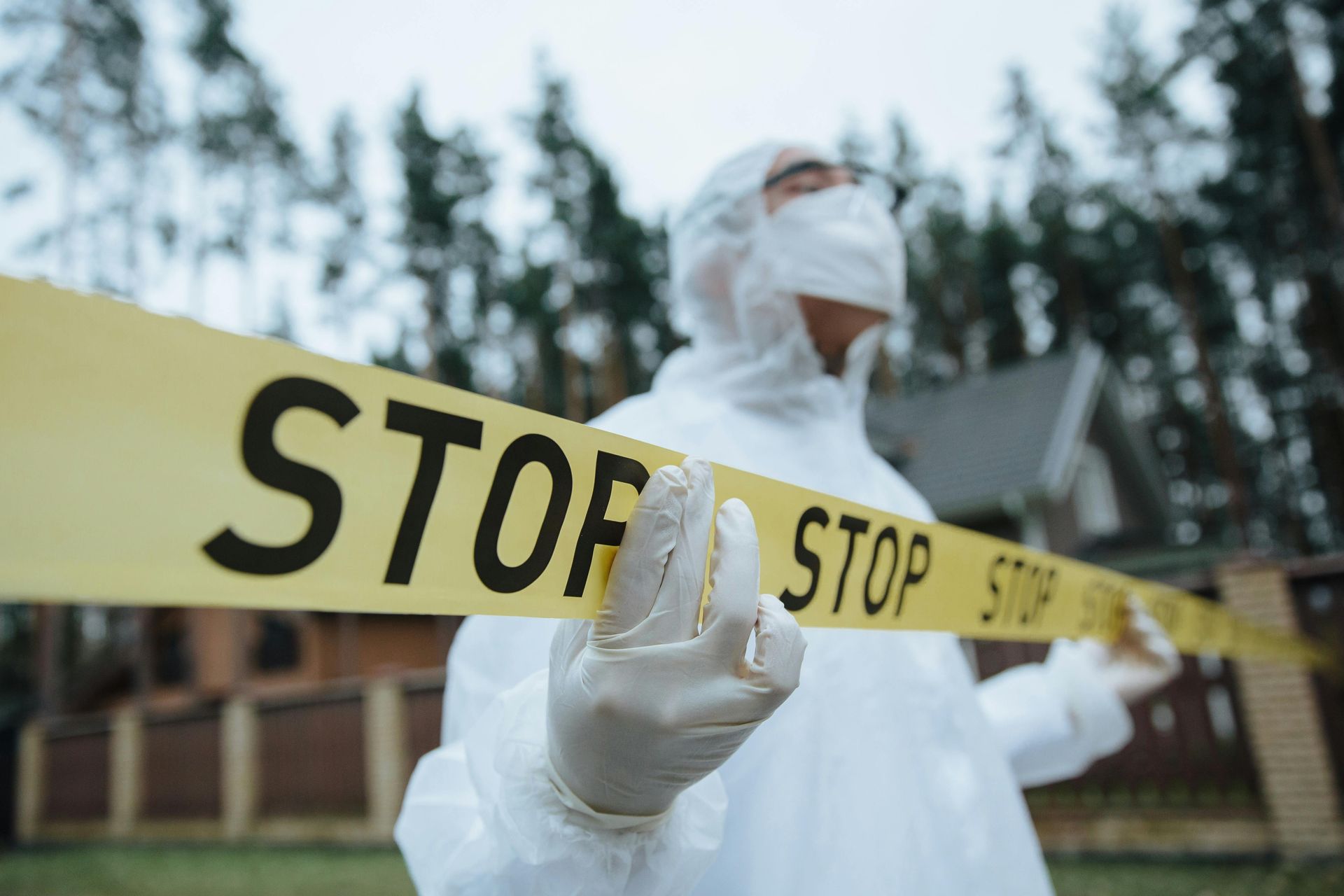What to Do After a Car Accident: Your Essential Guide
Indianapolis Car Crash Lawyer
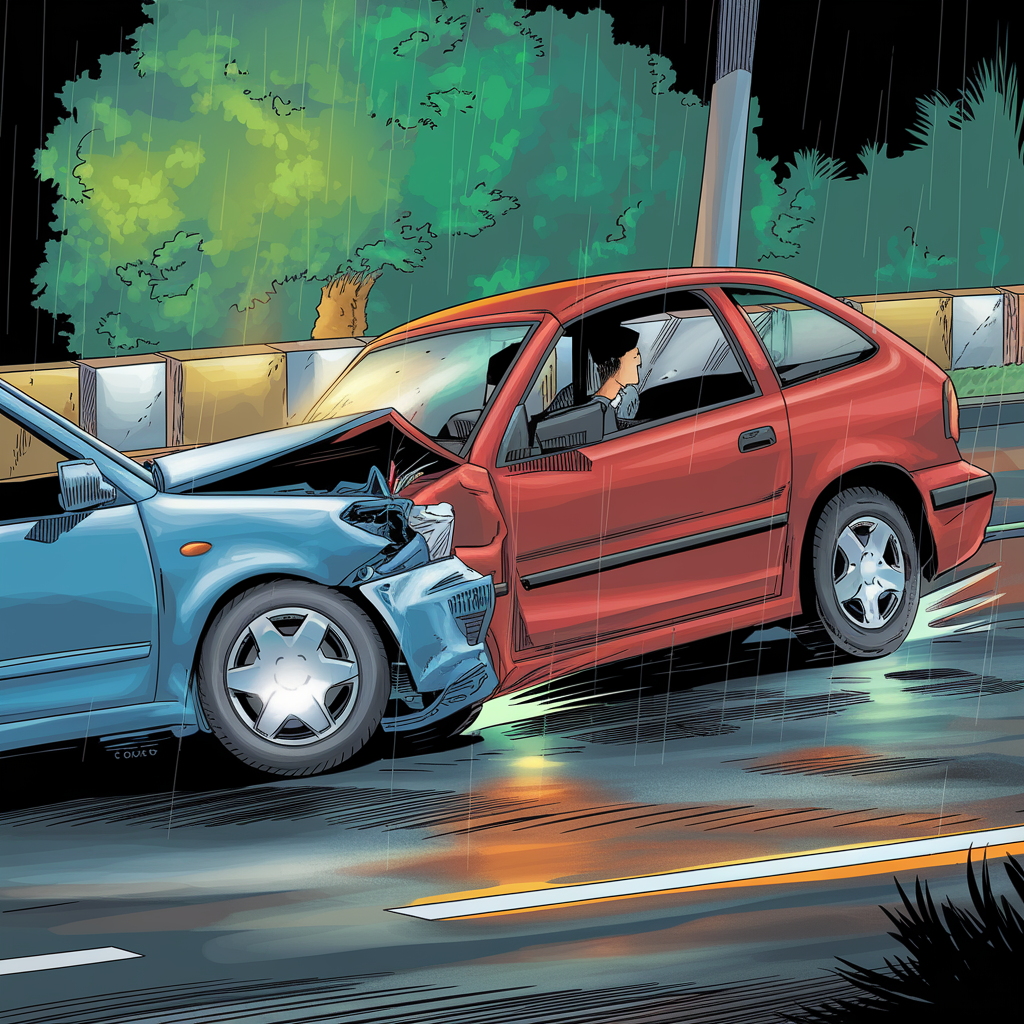
In the chaotic moments right after a car accident, your mind is racing. Shock and adrenaline can make it hard to think clearly, but what you do next is absolutely critical. Your first priorities are simple but essential: check everyone for injuries, make the scene safe, and call 911.
Getting these first moves right sets the stage for everything else, from your physical recovery to your insurance claim.
Your First Moves at the Accident Scene
The minutes following a crash are a blur. It's a high-stress environment where it's easy to make mistakes that can have serious consequences down the road. For instance, a simple "I'm so sorry" can be twisted and used against you as an admission of fault. Getting into an argument with the other driver only adds fuel to the fire and complicates things for police and insurance adjusters.
Your focus needs to be laser-sharp: safety first, procedure second.
Prioritizing Immediate Safety
Before you do anything else, take a second. Check yourself for injuries. Adrenaline is a powerful painkiller, and you might not realize you're hurt right away. If you feel okay, check on your passengers. Then, only if it's safe, check on the people in the other vehicle.
Next, look at your surroundings. Are you in the middle of a busy highway? If the cars are still drivable, the safest thing to do is usually to move them to the shoulder or a nearby parking lot. Getting out of the flow of traffic prevents a second, often more serious, collision.
If the cars can't be moved, flip on your hazard lights immediately. This is the universal sign for "caution" and will help warn other drivers.
To help you remember these critical first actions, here is a quick-reference checklist.
At-the-Scene Safety Checklist
This table breaks down the most important actions to take right after a crash to keep everyone safe and stay on the right side of the law.
| Action | Reason | Pro-Tip |
|---|---|---|
| Check for Injuries | Your health is the top priority. Adrenaline can mask serious injuries. | Check on yourself first, then passengers, then others if it's safe to exit your vehicle. |
| Move to Safety | Prevents secondary accidents, which are often more severe. | If cars are drivable, move to the shoulder. If not, turn on hazard lights immediately |
| Call 911 | Summons police and paramedics. A police report is vital for insurance claims. | Even for "minor" accidents, a police report creates an official record of the event. |
| Stay Calm | Avoids escalating the situation and admitting fault accidentally. | Limit conversation with the other driver to exchanging information. Don't discuss the crash details. |
Following this checklist can help you navigate the initial shock and confusion with a clear head, protecting both your health and your potential legal claim.
Calling 911 and Managing the Scene
Dialing 911 is non-negotiable. It brings both law enforcement and medical help to your location. When you speak with the dispatcher, be ready to give your exact location, tell them there's been an accident, and report any injuries you know of.
Key Takeaway: Never assume an accident is too "minor" for a 911 call. A police report is an official, third-party record of the incident, which is invaluable for insurance claims. Paramedics can also identify injuries that aren't immediately obvious.
While you're waiting for help, this is not the time to debate what happened with the other driver. Emotions are running high. Stick to the basics—exchanging insurance and contact info—which we'll cover next. Stay calm and focus on documenting the scene if you can, but remember that your safety comes first. The choices you make in these first few minutes are foundational, and you can learn more by reviewing these critical steps to take after a car accident.
Once everyone is safe and out of immediate danger, your next job is to become an investigator. What you do in these first few minutes can make or break your insurance claim and any potential legal action down the road. Acting methodically now will save you a world of headaches later.
Your first task is to exchange information with the other driver. Keep a level head; this isn't the time to argue about who was at fault. Just stick to the facts.
The Essential Information Exchange
You need to get a specific set of details from every single driver involved. Don't trust your memory—it's unreliable under stress. Use your phone to snap clear pictures of their documents or type the info into a notes app.
Here’s the absolute minimum you need to walk away with:
- Full Name and Contact Information: Get their full name, address, and phone number.
- Driver's License Information: Ask to see their license and jot down the number and expiration date.
- Insurance Company and Policy Number: This is non-negotiable. Get a crystal-clear photo of their insurance card.
- Vehicle Details: Note the make, model, year, color, and license plate number of their car. It's also smart to find the Vehicle Identification Number (VIN), usually visible on the driver's-side dashboard or inside the door jamb.
I can't stress this enough: be thorough. Solid documentation is the bedrock of a successful claim. The quality of the information you gather right now can directly influence how smoothly your claim gets processed and what the final outcome is. For a deeper dive into why this reporting is so crucial, you can explore detailed guidance on car accident procedures.
Your Role as an Accident Scene Photographer
Your smartphone is the most powerful tool you have at the scene. Photos and videos create an objective record of what happened, and that visual proof is incredibly difficult to argue with later. Don't just take one picture of the dent in your door and call it a day.
Your goal is to tell a complete story. Imagine you're a detective trying to piece together the scene for someone who wasn't there.
Pro Tip: Take way more photos than you think you'll ever need. You can't go back in time to get another angle. Capture everything from multiple distances to paint a comprehensive picture.
Your photo checklist should include:
- The Big Picture: Take wide shots of the entire accident scene from different viewpoints, showing where all the vehicles ended up.
- Vehicle Damage: Get close-ups of the damage on all cars involved, not just your own.
- License Plates: A clear, readable photo of every vehicle's license plate is a must.
- Road Conditions: Document any skid marks, debris on the road, potholes, or slick spots from rain.
- The Environment: Capture photos of traffic signs, signals (and if they were working), and anything that might have blocked a driver's view, like a building or overgrown trees.
- Weather: Is it sunny, foggy, or pouring rain? Document it. Weather can be a major contributing factor.
- Visible Injuries: If you have any cuts, bruises, or scrapes, photograph them right away.
This visual evidence is exactly what insurance adjusters and legal teams use to understand the dynamics of the crash and figure out who is liable.
The Value of Eyewitnesses
Independent witnesses can be a game-changer for your case. A neutral third party who can back up your version of events adds a massive amount of credibility to your claim. If you see people nearby who stopped to look, politely ask them what they saw.
Most people are willing to help if you approach them calmly. Don't be pushy. Just explain you were in an accident and ask if they witnessed it.
If they say yes, make sure you get:
- Their Full Name: Have them spell it out to ensure you get it right.
- Their Phone Number: This is the most crucial piece of information for follow-up.
- A Quick Statement: If they're willing, ask for a brief summary of what they observed. With their permission, you can even use your phone's voice memo app to record their account while it's still fresh in their mind.
Having a witness can be the single deciding factor in a "he said, she said" scenario where your story and the other driver's don't match up. Taking these few extra steps transforms a chaotic moment into a well-documented incident, setting you up for a much better outcome.
Navigating the Official Police Report
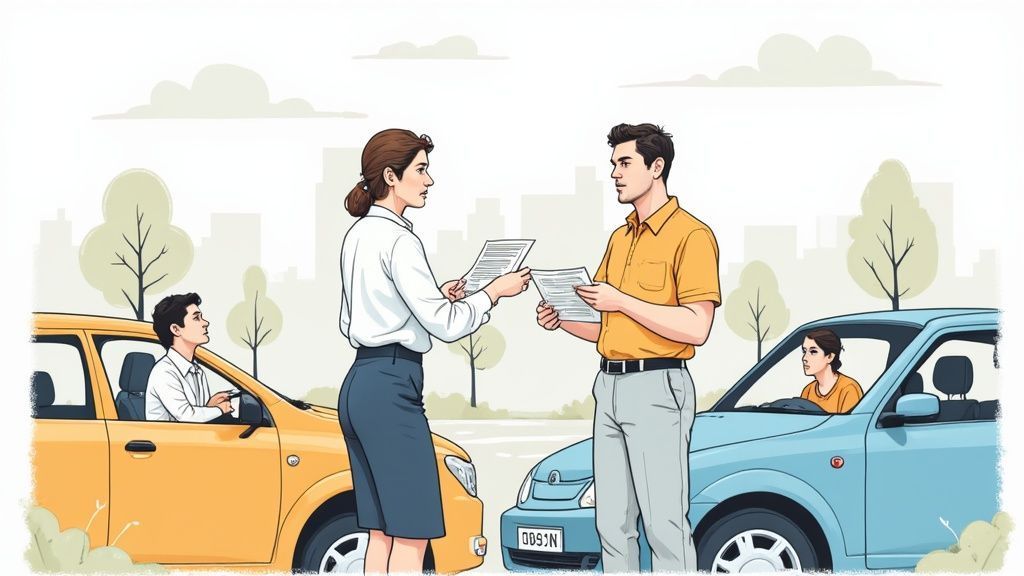
When the police show up, their job is to get control of the scene, figure out what happened, and start an official record. This interaction is a huge moment in the aftermath of a car accident. That police report they write will become a cornerstone document for your insurance claim and any legal action that follows.
Talking to an officer when you're shaken up and full of adrenaline can be tough. The key is to stay calm, be respectful, and stick to the facts. Let them lead the conversation. Answer their questions directly and honestly, but don't volunteer information or guess about things you don't know for sure.
Giving a Clear and Factual Statement
Your statement to the police is incredibly important. This is not the time to get emotional, point fingers, or speculate about what the other driver was thinking.
Instead, just describe what happened from your point of view using factual language. For example, instead of saying, "He came barreling out of nowhere and T-boned me," you can say, "I was traveling north through the intersection with a green light when the other vehicle, which was heading west, entered the intersection and our vehicles collided."
Critical Tip: Never, ever admit fault, not even a little bit. Saying things like "I'm so sorry" or "I guess I didn't see them" can be twisted into an admission of guilt that will come back to haunt you. Stick strictly to the facts.
Remember, the officer is a neutral party collecting information, not your friend or therapist. Giving a clear, objective account is the best way to protect yourself and ensure the report is accurate.
How to Get Your Official Police Report
Before the officer leaves the scene, you need to get two pieces of information: their name and badge number, and the police report number. That report number is your key to getting a copy of the official document.
You won't get the report right there on the spot. It takes the officer time to write it up and for the department to process it. Usually, you can expect it to be ready within a few days to a week.
Most police departments now have online portals where you can request and download your report for a small fee using that report number. In Indiana, for instance, a great place to start is the state's central repository, BuyCrash.com. If you strike out online, you can always go down to the police department in person and request a copy.
Reviewing the Report for Accuracy
Once you get your hands on that report, read every single word. Insurance adjusters treat these reports like gold, so even a tiny mistake can create a massive headache for your claim.
Pay close attention to these specific areas:
- The Narrative: This is the officer's written summary of what happened. Does it match up with the facts you gave them?
- The Diagram: Officers often draw a small diagram of the crash. Make sure the positions of the cars, lanes of travel, and point of impact look correct.
- Factual Details: Double-check every name, address, insurance policy number, and vehicle description. A simple typo here can cause serious delays.
- Citations: See if any tickets were issued and who got them. This is often a very strong indicator of who was at fault.
If you find a clear factual error—like your license plate number is wrong or your name is misspelled—contact the police department and ask to speak with the officer who wrote the report. They can usually file a supplement or addendum to fix simple mistakes.
However, if the error is a big one, like the narrative completely misrepresents how the accident happened, correcting it can be much more difficult. This is often a sign that you need to consult with a legal professional. An accurate report is absolutely essential for a fair outcome.
Once the initial shock and chaos at the scene have passed, one of the first calls you need to make is to your own insurance company. Most policies actually require you to report a crash promptly. If you wait too long, you could seriously jeopardize your ability to get compensated for your damages.
This call officially kicks off the claims process. It's your first chance to get your side of the story on the record. But be warned: what you say—and just as importantly, what you don't say—can dramatically affect your claim's outcome.
What to Have Ready Before You Call
A little preparation can turn what feels like a stressful interrogation into a simple, straightforward report. Before you even think about dialing, take a minute to gather all the information you collected at the crash scene. This helps you give a clear, confident account without getting flustered or fumbling for details.
Here’s a quick checklist of what you should have in front of you:
- Your Policy Number: Keep your insurance card handy or have the app open so you can give them this right away.
- The Police Report Number: This is crucial for linking your insurance claim to the official law enforcement record.
- Other Driver's Information: You'll need their full name, contact info, and—most critically—their insurance company and policy number.
- A Factual Summary: Jot down a brief, objective rundown of what happened: the date, time, location, and the basic sequence of events.
Having these details organized allows you to stay in control of the conversation and stick to the facts you know for sure.
Key Takeaway: Stick strictly to the facts. The claims agent is trained to ask open-ended questions. Your only job is to answer them truthfully without speculating, guessing, or admitting any fault. Use neutral language and only report what you personally saw and did.
This conversation is not the time to tell an emotional story. A simple, "I was driving through the intersection when my vehicle was struck on the passenger side," is infinitely better than, "This maniac blew the red light and just smashed right into me!" Let the evidence you gathered do the heavy lifting.
Communicating With the Insurance Adjuster
Shortly after you file your claim, your case will be handed over to an insurance adjuster. This person’s job is to investigate the accident, figure out who was at fault, and calculate the value of the damages and injuries. It's vital to remember that they are not your friend or advocate; they work for the insurance company, and their goal is to resolve the claim for as little as possible.
You should be cooperative but cautious in all your conversations with adjusters, whether they're from your insurance or the other driver's. Never, ever agree to give a recorded statement without thinking it through or talking to an expert first. These recordings are often used to pick your story apart and find inconsistencies later on.
When you do speak with an adjuster, keep these pointers in mind:
- Be Polite but Firm: You can cooperate without oversharing or giving away information they don't need.
- Don't Downplay Injuries: If they ask how you're feeling, a simple, "I'm under a doctor's care for injuries from the accident" is all you need to say. Never say "I'm fine," because many serious injuries have delayed symptoms.
- Document Everything: Keep a detailed log of every single call. Note the date, time, the person you spoke with, and a summary of the discussion. Save every email and letter.
Understanding the adjuster's true role helps you navigate the process more strategically. They are there to close the claim based on the policy and the evidence. For anything more complicated than a simple fender-bender, especially cases with significant injuries or disputes over liability, understanding how personal injury lawyers in Indianapolis can help you can give you crucial leverage. Expert support ensures your rights are protected every step of the way.
Prioritizing Your Health After the Crash
In the chaotic moments right after a car wreck, your body goes into survival mode. A flood of adrenaline can completely mask pain, making it dangerously easy to believe you’re unharmed. I’ve seen it countless times: someone walks away from a crash feeling fine, only to wake up in agony the next day.
Never, ever assume you're okay just because you don't feel immediate pain. Seeking a medical evaluation isn’t just a good idea—it's absolutely essential for your health and any future claim you might need to make. Saying "I'm fine" at the scene can be used against you later if serious injuries surface.
Recognizing Delayed-Onset Injuries
The forces your body endures in a car accident are incredible, even in what looks like a minor fender-bender. That impact can cause a whole host of injuries that don't show up right away.
One of the most frequent delayed injuries is whiplash. This happens when your head is violently snapped back and forth, straining or tearing the muscles and ligaments in your neck. You might feel perfectly normal after the crash, but the tell-tale stiffness and headaches often don’t set in until the next morning.
Other common injuries that can take time to appear include:
- Concussions: This mild traumatic brain injury can lead to delayed symptoms like headaches, dizziness, "brain fog," and memory problems.
- Back Injuries: Damage to spinal discs or deep muscle tissue can result in persistent back pain that only gets worse with movement.
- Internal Bleeding or Bruising: While less common, these injuries are potentially life-threatening. They might only show themselves hours later through symptoms like abdominal pain or deep, dark bruising.
Key Insight: Never ignore new symptoms after an accident. If you start experiencing headaches, stiffness, dizziness, or any pain that wasn't there before, your body is sending you a clear signal. Listen to it and get to a doctor.
The Critical Role of Medical Documentation
Getting a medical evaluation does more than just safeguard your health—it creates the paper trail you need. To succeed with an insurance claim or personal injury case, you have to prove your injuries were a direct result of the accident. A timely medical report from a doctor or hospital officially links your physical condition to the collision.
Any significant delay in seeking medical care gives the insurance company an opening. They will almost certainly argue that your injuries either aren't that serious or were caused by something else entirely after the crash. This is a classic tactic to devalue or deny legitimate claims. You can learn more about how to protect your rights in our complete guide to Indiana car accident claims.
Keeping Track of Your Medical Journey
Once you've started treatment, staying organized is non-negotiable. Your road to recovery could involve multiple doctors, physical therapy, prescriptions, and specialists. Keeping meticulous records is the only way to ensure you can account for every single dollar when it’s time to seek reimbursement.
I always advise clients to create a dedicated folder—physical or digital—for all health-related documents from the accident.
| Document Type | Why It's Important | Pro Tip |
|---|---|---|
| Medical Bills | This is direct proof of your financial losses for treatment. | Keep every single invoice, even for small co-pays and prescriptions. |
| Appointment Logs | Shows your consistency in following medical advice. | Use a simple calendar to track dates, times, and who you saw for each visit. |
| Receipts | Captures all your out-of-pocket costs like mileage or medical supplies. | A basic spreadsheet is perfect for tallying these expenses as you go. |
| Doctor's Notes | This documents your official treatment plan and recovery progress. | Always ask for copies of visit summaries and any notes restricting work. |
The global statistics on traffic incidents really drive home why this structured approach is so critical. The World Health Organization reported 1.35 million road traffic deaths globally in a single year, which shows that what you do after a crash can truly be a matter of life and death. You can discover more insights about global traffic safety data on Wikipedia. By putting your health first and carefully documenting everything, you protect both your physical well-being and your right to fair compensation.
Common Questions After a Car Accident
Even with a step-by-step guide, the real world loves to throw curveballs. The chaos after a wreck is often filled with specific, personal "what-if" scenarios that can leave you feeling completely lost. Let's tackle some of the most common questions I hear from clients to give you direct, practical answers for navigating those gray areas.
What If the Accident Was Minor?
It's incredibly tempting to write off a low-speed fender-bender or a parking lot bump as "no big deal." You're in a hurry, the damage looks like a scratch, and the other driver seems perfectly nice. You both agree to just swap phone numbers and handle it yourselves, avoiding the police and insurance companies.
This is almost always a huge mistake. I've seen it happen time and again: what looks like a tiny scrape on a bumper is actually hiding thousands of dollars in damage to sensors and structural parts underneath. Worse, that "nice" driver can suddenly change their story a week later or start complaining about injuries they didn't have at the scene.
Actionable Advice: Treat every single accident like a real accident. Always, always file a police report, even for minor incidents, and report it to your insurer. This creates an official record that serves as your shield against future claims of more severe damage or injuries. It’s a small hassle that provides a massive layer of protection.
What Should I Do If the Other Driver Is Uninsured?
That sinking feeling you get when you find out the at-fault driver has no insurance is awful, but it doesn't mean you're out of luck. This is the exact moment your own insurance policy becomes your lifeline. The very first thing to do is pull out your policy and look for Uninsured/Underinsured Motorist (UM/UIM) coverage.
This specific coverage is designed to step in and pay for your medical bills and other damages when the person who hit you can't. It essentially takes the place of the at-fault driver's missing insurance.
If you have UM/UIM coverage:
- You will file the claim directly with your own insurance company.
- Your insurer handles your claim, then they may go after the at-fault driver to get back what they paid you.
- This is how you protect yourself financially from someone else's irresponsible choices.
Without this coverage, your options get very narrow, very fast. You might be stuck using your health insurance for medical bills, paying for car repairs out of your own pocket, and then trying to sue the other driver personally. That's a long, difficult road that often leads nowhere if the person has no money or assets to begin with.
Should I Talk to the Other Driver’s Insurance Company?
Sooner or later, your phone will ring, and it will be the other driver's insurance adjuster. They will probably sound friendly and helpful, and they'll ask you to provide a recorded statement about the crash. Be extremely careful here.
The adjuster’s only job is to save their company money by minimizing your claim. They are experts at asking seemingly innocent questions designed to trap you. For example, they might ask, "So other than a little neck pain, you're feeling okay?" If you say "yes," they will use that against you when more serious injuries—which often take days to fully appear—show up later.
You are under no legal obligation to give them a recorded statement. A polite but firm, "I'm not prepared to give a statement at this time," is all you need to say. You should only provide basic information like your name and contact details, then direct them to your own insurance company or, even better, your attorney.
When Is It Time to Contact a Lawyer?
A lot of people hesitate to call a lawyer. They worry it's too aggressive, will be too expensive, or will make things more complicated. In reality, there are clear signs that you need a professional in your corner. The insurance claims process is not set up to be fair; it's set up to be profitable for the insurer. An attorney levels that playing field.
Consider calling a lawyer if any of these situations sound familiar:
- You were injured in any way. This is the biggest red flag. An attorney knows how to calculate the true, long-term cost of an injury, which includes things like future medical care, lost wages, and pain and suffering—things adjusters will never offer on their own.
- The insurance company is fighting you on who was at fault. In a "he said, she said" scenario, you need an advocate to build a strong case that proves the other driver’s negligence.
- The settlement offer seems way too low. First offers almost always are. An experienced lawyer knows what your claim is actually worth and has the leverage to negotiate a fair amount.
- You’re just plain overwhelmed. Juggling medical appointments, repair shops, and endless calls from adjusters is a full-time job, especially when you're trying to recover. A lawyer can take over and manage the entire process for you.
Knowing when to ask for help is one of the most important steps you can take after an accident. A quick consultation early on can give you clarity and make sure your rights are protected from day one.
Navigating the legal complexities after an accident can be daunting, but you don't have to do it alone. The Law Office of Mark Nicholson provides experienced and aggressive representation to ensure your rights are protected and you receive the fair compensation you deserve. For a free, no-obligation consultation to discuss your case, visit us at https://www.marknicholsonlaw.com.

